This article explains how to install the XAMPP program suite on a computer running Windows 10. XAMPP is a complete software that allows you to run and manage numerous servers, such as Apache and MySQL, from a single dashboard.
Steps
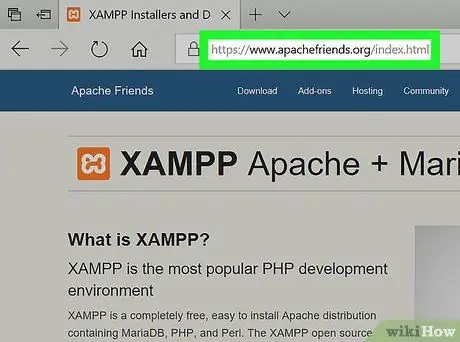
Step 1. Log in to the XAMPP website
Paste the URL https://www.apachefriends.org/index.html into the address bar of your computer's internet browser.
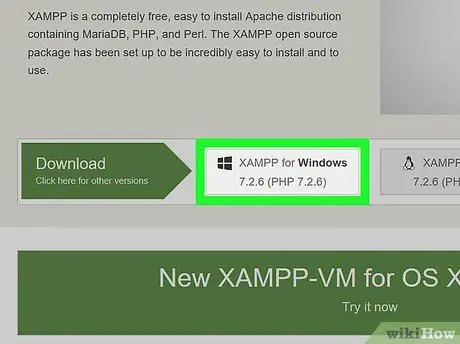
Step 2. Click the XAMPP for Windows button
It is gray in color and is visible at the bottom of the page.
Depending on your internet browser settings, you may need to select the destination folder or confirm the reliability of the download source
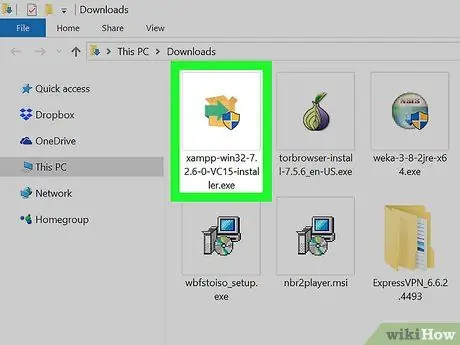
Step 3. Double-click the icon of the file you just downloaded
The file name should be similar to xampp-win32-7.2.4-0-VC15-installer and it should be stored inside the default folder where all web downloads are saved (for example the "Downloads" or "Desktop" folder).
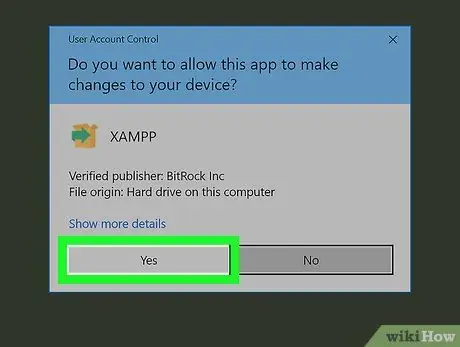
Step 4. Click the Yes button when prompted
This will start the XAMPP installation wizard.
If you have enabled the Windows "User Account Control" feature, you may need to press the button OK when prompted to continue.
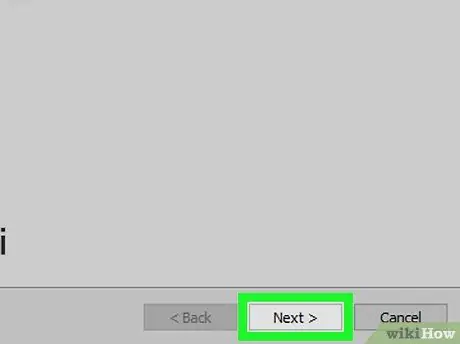
Step 5. Click the Next button
It is located at the bottom of the window.
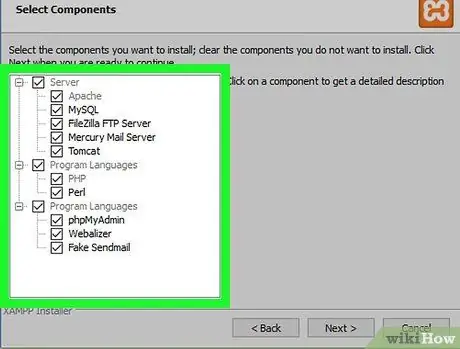
Step 6. Select the XAMPP features you want to install
Review the XAMPP feature list displayed on the left side of the window. If you notice an item that is not necessary for your XAMPP configuration, uncheck the corresponding check button.
By default, all the elements that make up the XAMPP program suite will be installed
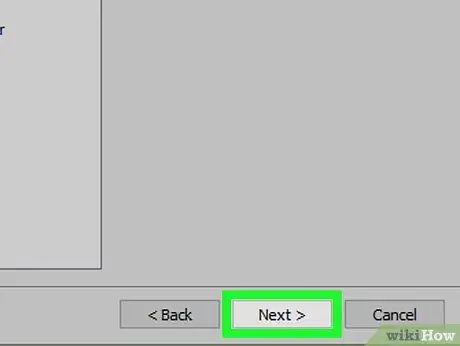
Step 7. Click the Next button
It is located at the bottom of the window.
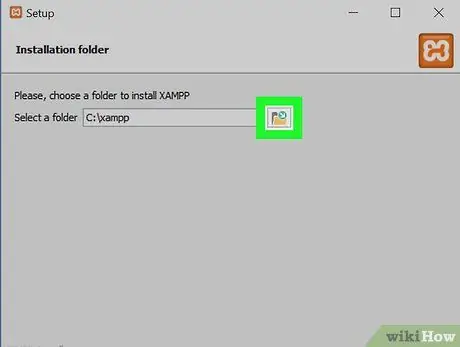
Step 8. Select the installation folder
Click the folder icon on the left of the current installation directory, then choose the folder on your computer to store XAMPP.
- If you have enabled the Windows "User Account Control" feature, do not install XAMPP in the root folder of the system hard drive (for example [Computer_Manufacturer_Name] (C:)).
- To create a new folder specifically dedicated to the installation of XAMPP, select an existing directory (for example Desktop) and press the button Create new folder.
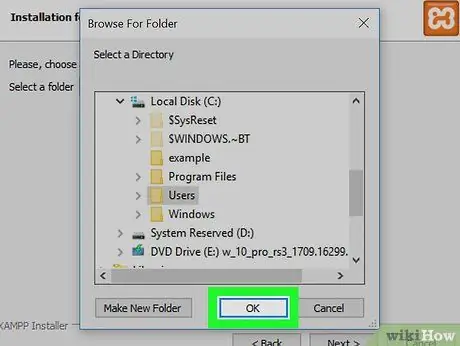
Step 9. Click OK
This way the selected folder will be used as the installation directory for XAMPP.
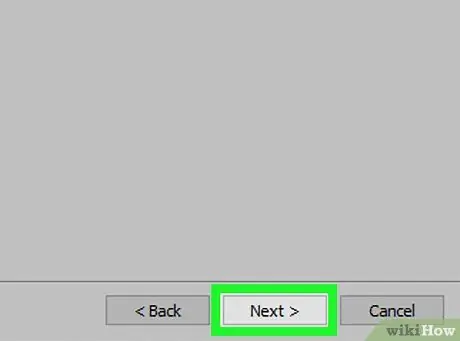
Step 10. Click the Next button
It is located at the bottom of the window.
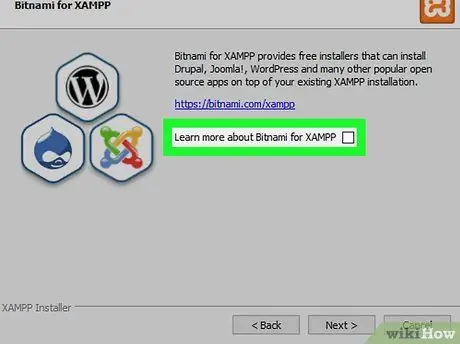
Step 11. Uncheck the "Learn more about Bitnami" checkbox, then click Next
The indicated check button is positioned in the center of the page.
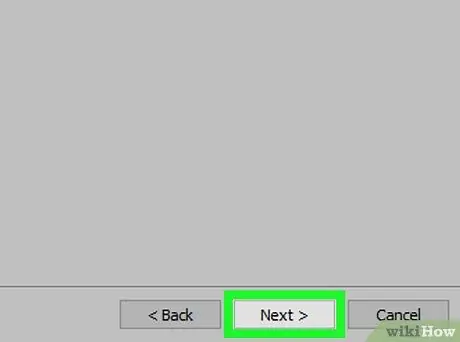
Step 12. Start the actual installation of XAMPP
Click on the button Next located at the bottom of the window. XAMPP will be installed inside the selected folder.
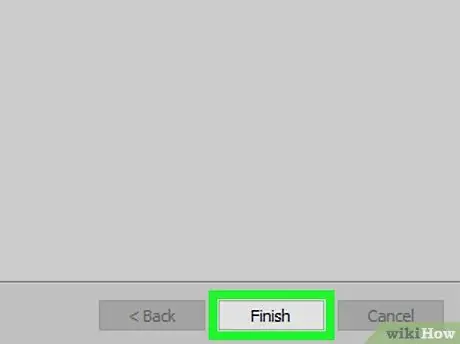
Step 13. Click the Finish button when prompted
It is located at the bottom of the XAMPP installation window. The latter will be closed and the XAMPP control panel will be displayed, which will give you access to all the servers you have installed.
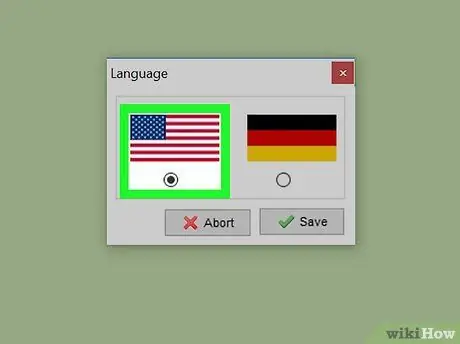
Step 14. Select a language
Click the American flag to choose the English language or the German one to choose German as the language.
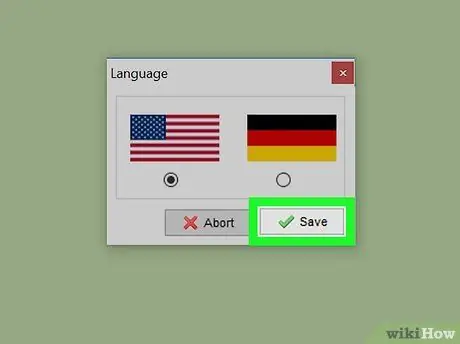
Step 15. Click the Save button
This will display the XAMPP control panel in the selected language.
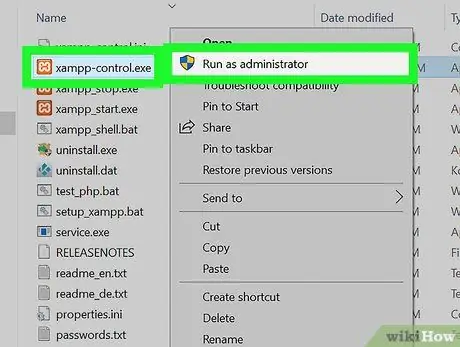
Step 16. Launch XAMPP from the installation folder
If in the future you will need to access the XAMPP control panel you will have to open the folder where you installed the program, select with the right mouse button the orange and white icon xampp-control, click the item Run as administrator placed in the contextual menu that will appear and press the button Yup when required.
- In this case you will notice the presence of one X red on the left of each server included in XAMPP (for example the "Apache" server). By clicking on one of these X you will be prompted to press the button Yes if you want to install the server software you have chosen on your computer.
- Contrary to what it might seem, by double clicking on the icon xampp_start XAMPP will not start.
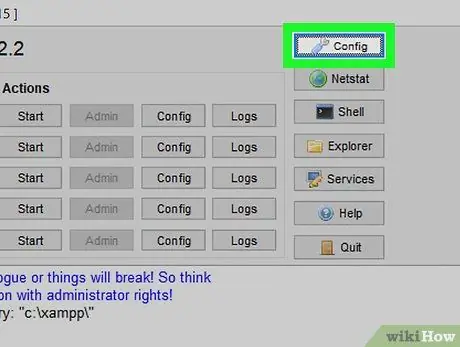
Step 17. Apache server startup troubleshooting
On some computers with Windows 10 the Apache server does not start due to the fact that the communication port is blocked. This error can appear for two reasons, but the solution is very simple:
- Click the button Config located to the right of the "Apache" entry.
- Click the option Apache (httpd.conf) from the menu that appeared.
- Scroll down the list to the "Listen 80" section (you can press the key combination Ctrl + F and type the search string listen 80 to locate it quickly and easily).
- Replace the value 80 with the number of a free port (for example 81 or 9080).
- Press the key combination Ctrl + S to save the changes made to the configuration file, then close the text editor.
- At this point restart XAMPP by clicking the button Quit and opening the control panel again in "Administrator" mode from the program installation folder.






